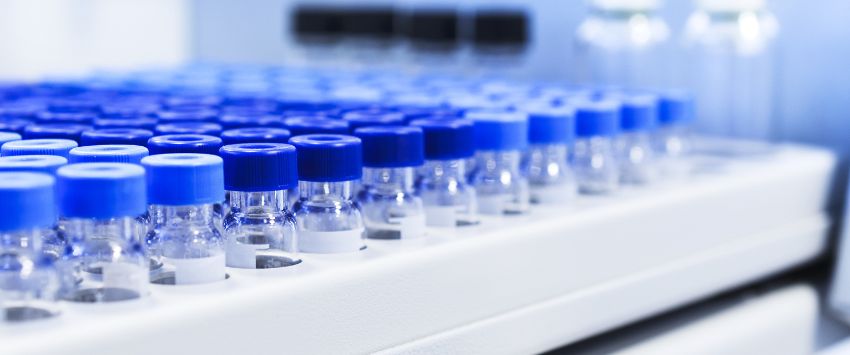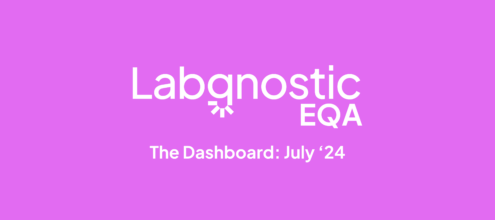Enabling paperless EQA reporting throughout the NHS
THE CUSTOMER
Manchester Royal Infirmary (MRI) is part of Central Manchester University NHS Foundation Trust (MFT). Founded in 1752, MRI has evolved into a renowned research and teaching hospital, collaborating with Manchester University’s Medical School. UK NEQAS is an international External Quality Assurance (EQA) provider that ensures the reliable in-range reporting of laboratory analysers and gives labs confidence that their test results are accurate and compliant across diverse settings.
Together, they played a pivotal role in the successful implementation of automated External Quality Assurance (EQA) testing and have been instrumental in realising the vision of paperless requesting and reporting of EQA throughout the UK.
THE CHALLENGE
Manual processes and disparate test mapping causing delays
One of the primary challenges faced by MRI and UK NEQAS was automating the requesting and reporting of EQA tests. Traditionally, this process involved manual forms handling, leading to potential delays, data entry errors, and administrative obstacles which impacted the EQA accreditation status for the hospital.
For UK NEQAS, the intricacies of different test mappings in labs across the wider NHS, individual test requests versus profile-based requests, variations in reporting formats and the complexity of EQA schemes posed significant challenges. This demanded the need for a streamlined, efficient, and error-free process for the paperless requesting and reporting of tests.
THE SOLUTION
Streamlined test reception and reporting
MRI, in collaboration with UK NEQAS Birmingham Quality a branch of UK NEQAS, introduced a solution to enable standardisation of the tests using Labgnostic Lab-to-lab interoperability, together with paperless requesting and reporting. The implementation covered 11 disparate labs across NHS England, with MRI playing a pivotal role in the successful roll-out.
The EQA process at MRI involves the receipt of multiple EQA test samples accompanied by a consolidated barcode sheet from UK NEQAS. Barcodes are scanned to confirm delivery and sample information is seamlessly integrated into the Laboratory Information Management System (LIMS). The samples undergo testing, and results are electronically sent back to UK NEQAS. This streamlined process ensures timely and accurate reporting of EQA results.
Synchronised test variations
MRI and UK NEQAS worked closely with X-Lab to streamline the EQA delivery process. Challenges such as different test mappings from different labs and diverse reporting formats were addressed. Birmingham Quality now enable their tests to accommodate multiple mappings through the Labgnostic Lab-to-lab pathology exchange. And all profiles are now requested by individual test.
MRI initially faced challenges with their LIMS configuration but created new test codes within the LIMS and these were easily rolled out to additional EQA schemes. UK NEQAS also now request each code and different variations of the same test to accommodate multiple types of tests. This synchronisation has now streamlined EQA reporting and automated it for huge time savings.
THE OUTCOMES
Adaptability to different disciplines from disparate labs
MRI successfully piloted and established EQA schemes for various disciplines, including Clinical Chemistry, Immunology and Allergy, Haematology and more, demonstrating the adaptability and effectiveness of the LabgnosticEQA system.
Adam Tonge, IT Coordinator in the Department of Biochemistry at MRI, states;
“We can no longer fail for administrative reasons, meaning our EQA is always accredited because we consistently operate good testing practice.”
The initial success with complex schemes garnered support from staff, leading to increased interest in utilising LabgnosticEQA for additional schemes across the lab and out into the NHS.
Benefits of LabgnosticEQA
The MRI LabgnosticEQA adoption has yielded significant benefits including:
- Timely Accreditation: Results are consistently returned on time, eliminating the risk of accreditation failure.
- Efficiency Gains: The EQA process, from sample receipt to result reporting, has become streamlined and efficient, reducing the workload on staff.
- Zero Errors: The transition to LabgnosticEQA has eliminated requesting errors, transcription errors, and failed returns, contributing to a flawless EQA process, with a 100% return rate and improved data quality.
- Staff Satisfaction: The simplified and effective process has led to increased job satisfaction among staff, reducing stress and maintaining high EQA scores.
NEXT STEPS
Widening the adoption of automated EQA Reporting
Despite challenges, the success at MRI has paved the way for broader adoption. The simplified, effective, and stress-free process advocated by MRI serves as a model for the wider implementation of LabgnosticEQA across numerous labs and further EQA providers. The collaboration between MRI and UK NEQAS, exemplifies a successful transition from traditional paper based EQA processes to a streamlined, digital, and interoperable solution.




